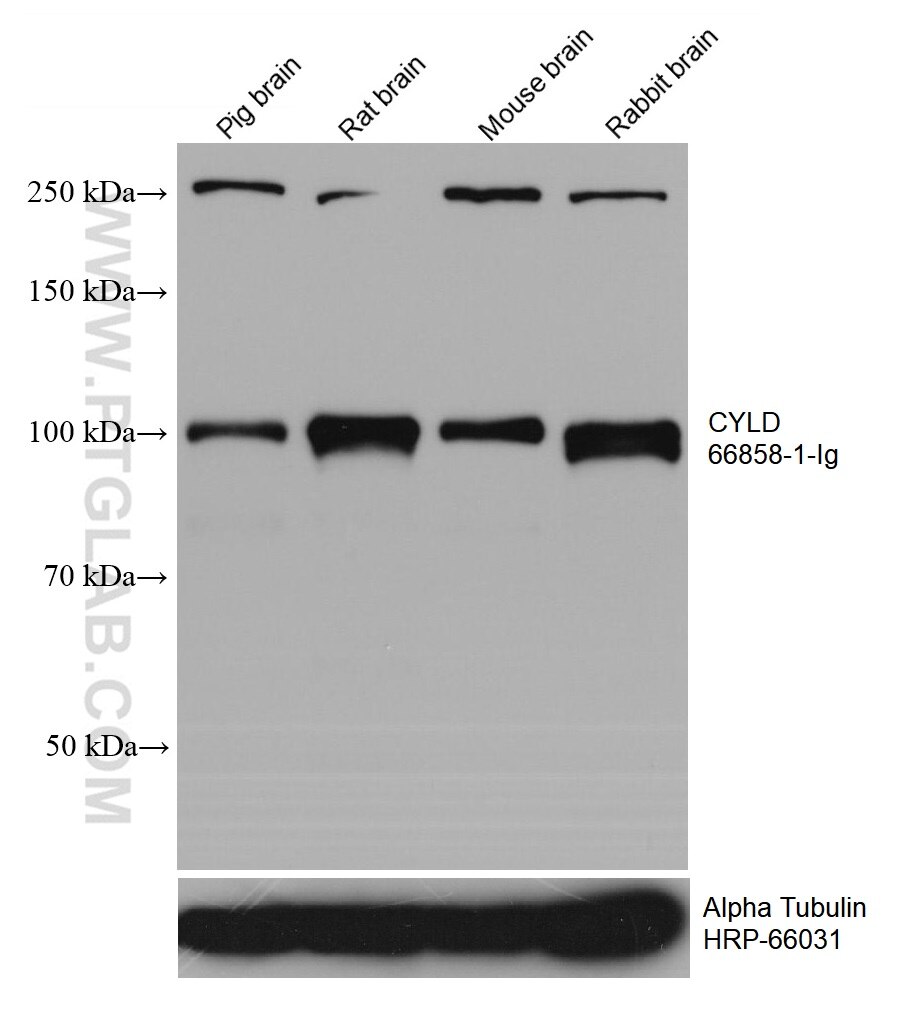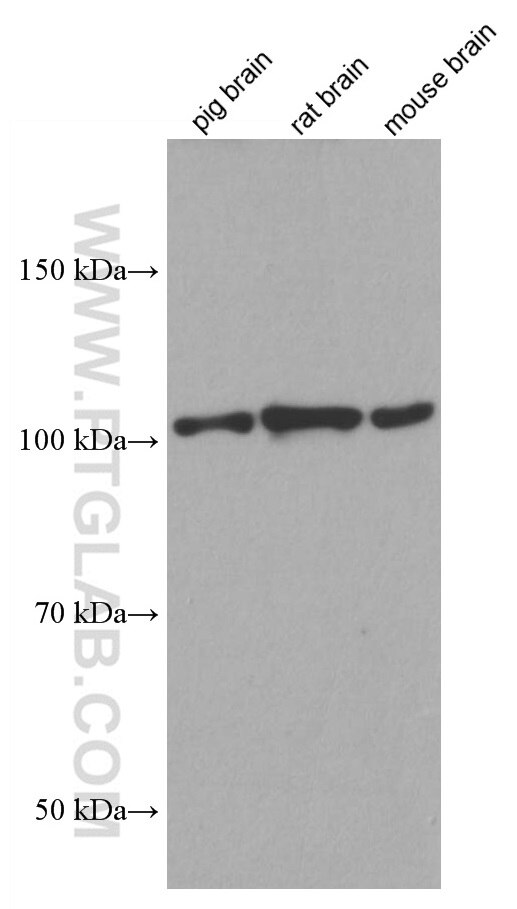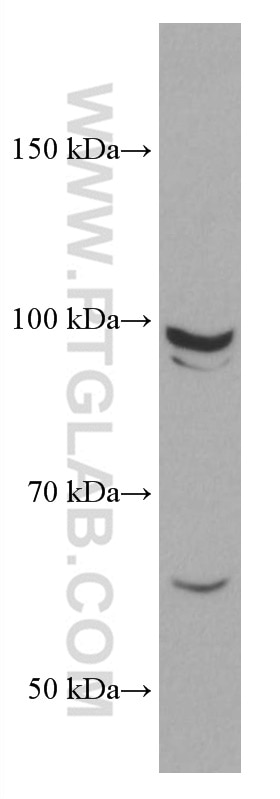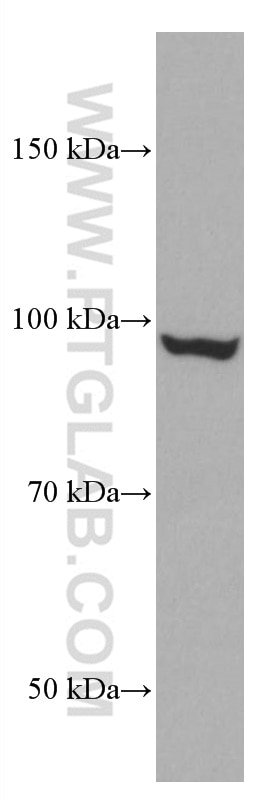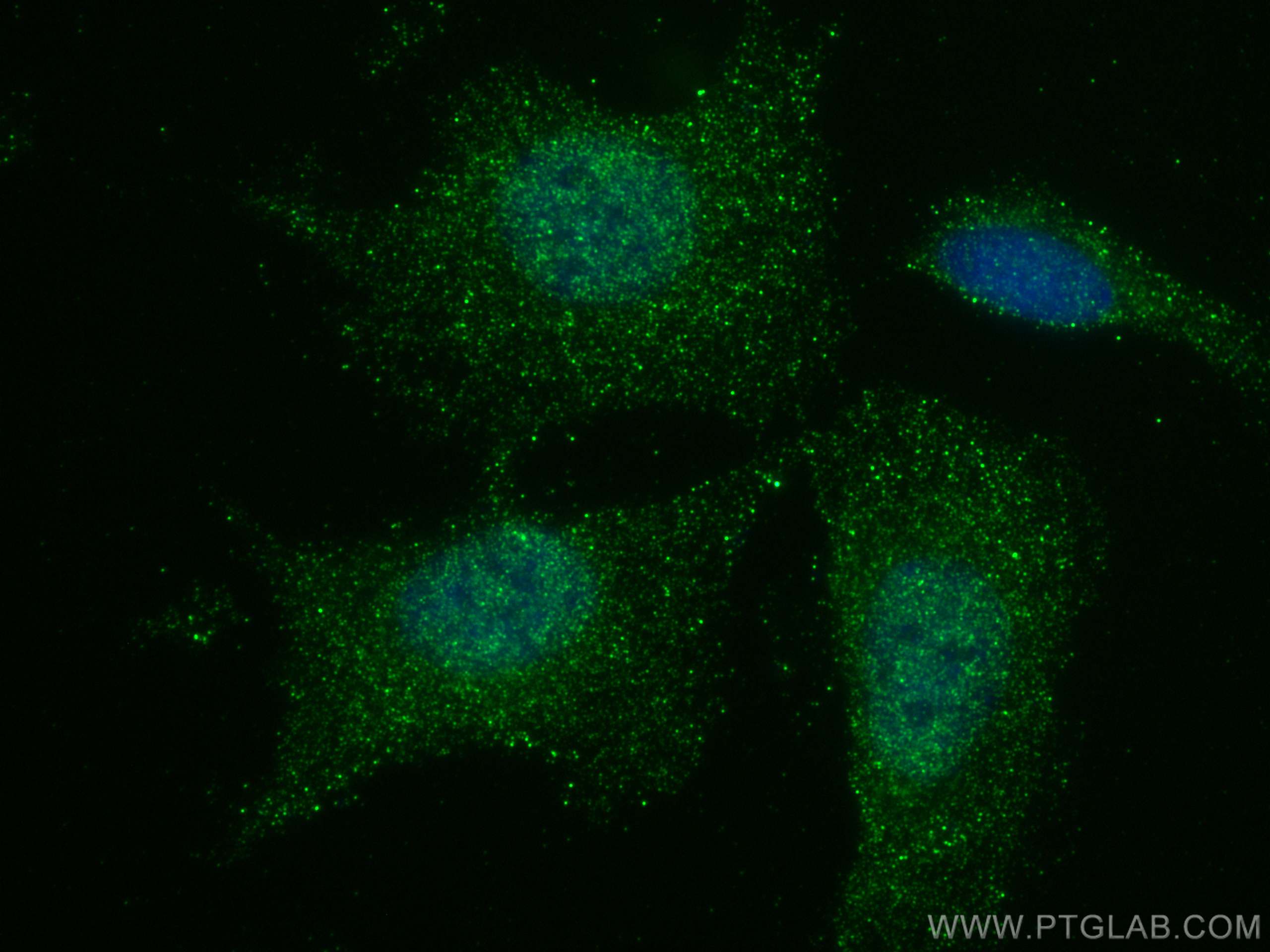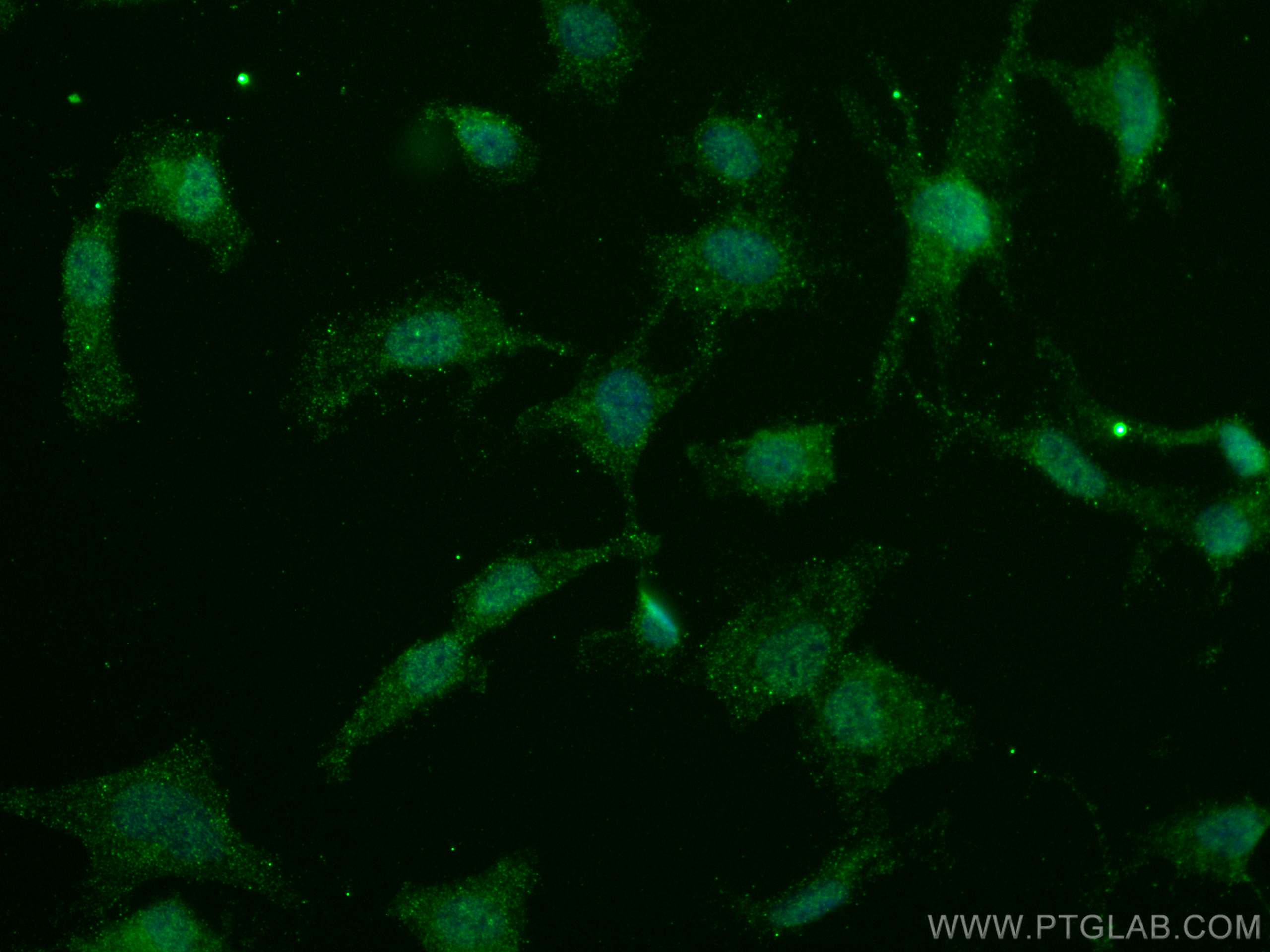CYLD Monoklonaler Antikörper
CYLD Monoklonal Antikörper für WB, IF/ICC, Indirect ELISA
Wirt / Isotyp
Maus / IgG2a
Getestete Reaktivität
Hausschwein, human, Kaninchen, Maus, Ratte
Anwendung
WB, IF/ICC, Indirect ELISA
Konjugation
Unkonjugiert
CloneNo.
1G2F4
Kat-Nr. : 66858-1-PBS
Synonyme
Geprüfte Anwendungen
Produktinformation
66858-1-PBS bindet in WB, IF/ICC, Indirect ELISA CYLD und zeigt Reaktivität mit Hausschwein, human, Kaninchen, Maus, Ratten
| Getestete Reaktivität | Hausschwein, human, Kaninchen, Maus, Ratte |
| Wirt / Isotyp | Maus / IgG2a |
| Klonalität | Monoklonal |
| Typ | Antikörper |
| Immunogen | CYLD fusion protein Ag28333 |
| Vollständiger Name | cylindromatosis (turban tumor syndrome) |
| Berechnetes Molekulargewicht | 107 kDa |
| Beobachtetes Molekulargewicht | 110 kDa |
| GenBank-Zugangsnummer | BC012342 |
| Gene symbol | CYLD |
| Gene ID (NCBI) | 1540 |
| Konjugation | Unkonjugiert |
| Form | Liquid |
| Reinigungsmethode | Protein-A-Reinigung |
| Lagerungspuffer | PBS only |
| Lagerungsbedingungen | Store at -80°C. 20ul Größen enthalten 0,1% BSA. |
Hintergrundinformationen
CYLD, also named as CYLD1, belongs to the peptidase C67 family. It is the protease that specifically cleaves 'Lys-63'-linked polyubiquitin chains. CYLD has endodeubiquitinase activity and plays an important role in the regulation of pathways leading to NF-kappa-B activation. CYLD contributes to the regulation of cell survival, proliferation and differentiation via its effects on NF-kappa-B activation. It is a negative regulator of Wnt signaling. CYLD inhibits HDAC6 and thereby promotes acetylation of alpha-tubulin and stabilization of microtubules. CYLD plays a role in the regulation of microtubule dynamics, and thereby contributes to the regulation of cell proliferation, cell polarization, cell migration, and angiogenesis. It is required for normal cell cycle progress and normal cytokinesis. CYLD inhibits nuclear translocation of NF-kappa-B and plays a role in the regulation of inflammation and the innate immune response, via its effects on NF-kappa-B activation. It is dispensable for the maturation of intrathymic natural killer cells, but required for the continued survival of immature natural killer cells. CYLD negatively regulates TNFRSF11A signaling and osteoclastogenesis.
